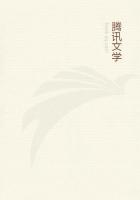Herein, therefore, is founded the reality of our knowledge concerning substances- That all our complex ideas of them must be such, and such only, as are made up of such ****** ones as have been discovered to co-exist in nature. And our ideas being thus true, though not perhaps very exact copies, are yet the subjects of real (as far as we have any) knowledge of them. Which (as has been already shown) will not be found to reach very far: but so far as it does, it will still be real knowledge. Whatever ideas we have, the agreement we find they have with others will still be knowledge. If those ideas be abstract, it will be general knowledge. But to make it real concerning substances, the ideas must be taken from the real existence of things. Whatever ****** ideas have been found to co-exist in any substance, these we may with confidence join together again, and so make abstract ideas of substances. For whatever have once had an union in nature, may be united again.
13. In our inquiries about substances, we must consider ideas, and not confine our thoughts to names or species supposed set out by names. This, if we rightly consider, and confine not our thoughts and abstract ideas to names, as if there were, or could be no other sorts of things than what known names had already determined, and, as it were, set out, we should think of things with greater ******* and less confusion than perhaps we do. It would possibly be thought a bold paradox, if not a very dangerous falsehood, if I should say that some changelings, who have lived forty years together, without any appearance of reason, are something between a man and a beast:
which prejudice is founded upon nothing else but a false supposition, that these two names, man and beast, stand for distinct species so set out by real essences, that there can come no other species between them: whereas if we will abstract from those names, and the supposition of such specific essences made by nature, wherein all things of the same denominations did exactly and equally partake; if we would not fancy that there were a certain number of these essences, wherein all things, as in moulds, were cast and formed; we should find that the idea of the shape, motion, and life of a man without reason, is as much a distinct idea, and makes as much a distinct sort of things from man and beast, as the idea of the shape of an ass with reason would be different from either that of man or beast, and be a species of an animal between, or distinct from both.
14. Objection against a changeling being something between a man and beast, answered. Here everybody will be ready to ask, If changelings may be supposed something between man and beast, pray what are they? Ianswer, changelings; which is as good a word to signify something different from the signification of man or beast, as the names man and beast are to have significations different one from the other. This, well considered, would resolve this matter, and show my meaning without any more ado. But I am not so unacquainted with the zeal of some men, which enables them to spin consequences, and to see religion threatened, whenever any one ventures to quit their forms of speaking, as not to foresee what names such a proposition as this is like to be charged with: and without doubt it will be asked, If changelings are something between man and beast, what will become of them in the other world? To which I answer, I. It concerns me not to know or inquire. To their own master they stand or fall. It will make their state neither better nor worse, whether we determine anything of it or no. They are in the hands of a faithful Creator and a bountiful Father, who disposes not of his creatures according to our narrow thoughts or opinions, nor distinguishes them according to names and species of our contrivance. And we that know so little of this present world we are in, may, I think, content ourselves without being peremptory in defining the different states which creatures shall come into when they go off this stage. It may suffice us, that He hath made known to all those who are capable of instruction, discoursing, and reasoning, that they shall come to an account, and receive according to what they have done in this body.
15. What will become of changelings in a future state? But, Secondly, I answer, The force of these men's question (viz. Will you deprive changelings of a future state?) is founded on one of these two suppositions, which are both false. The first is, That all things that have the outward shape and appearance of a man must necessarily be designed to an immortal future being after this life: or, secondly, That whatever is of human birth must be so. Take away these imaginations, and such questions will be groundless and ridiculous.















